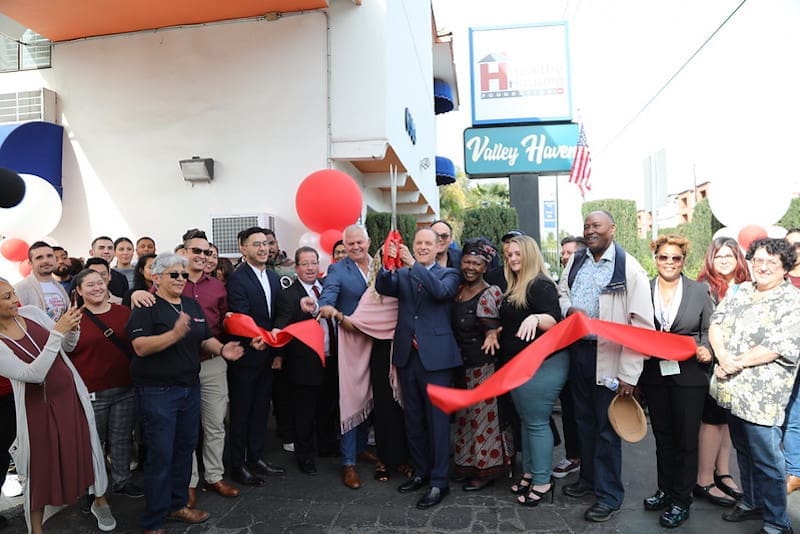AIDS Healthcare Foundation renewed its offer today of a turnkey 74-room hotel in Los Angeles — an offer first made to government officials over two months ago — for temporarily housing the homeless and/or isolate suspected coronavirus patients. As the coronavirus pandemic continues its deadly course, meaningful action on the homelessness crisis in Los Angeles remains largely at a standstill.
Last week, in response to mounting health concerns for the homeless and ongoing inaction on the homelessness crisis by Los Angeles officials, U.S. District Court Judge David O. Carter issued a sweeping ruling compelling L.A. governments to develop a plan for providing emergency shelter or housing for 6,000 to 7,000 homeless individuals currently living near freeway overpasses and underpasses in Los Angeles. The plan is due to the court by this Friday, May 22.
Los Angeles city and county officials continue to fall abysmally short in their efforts to provide emergency shelter or housing for the homeless during the pandemic. According to the Los Angeles Times, L.A. has only housed three homeless people under Gov. Gavin Newsom’s ambitious Project Roomkey, his statewide call to action on hotel owners and local governments and agencies to quickly house 15,000 of the state’s homeless during the pandemic.
AHF’s Healthy Housing Foundation (HHF) first offered use of its Valley Haven hotel to government officials more than two months ago — on March 15 — following Newsom’s statewide call to action. At the time, Housing Is A Human Right (HHR) and Healthy Housing Foundation, the housing advocacy and housing provider divisions of AHF, applauded the efforts of Newsom to swiftly address the coronavirus crisis in California. AHF also urged both state and local legislators to move quickly to protect unhoused residents and vulnerable tenants.
AHF purchased the Valley Haven in January to repurpose it as homeless and extremely-low-income housing for its Healthy Housing Foundation program, but had not yet leased it out when the pandemic hit.
“We tried repeatedly to make this property available for use to alleviate the crisis during the pandemic,” said Michael Weinstein, president of AHF. “It’s really a beautiful, turnkey facility well-suited to the task. If we can somehow cut through the red tape, we are only too happy to put it to use sheltering those in need during this crisis.”

